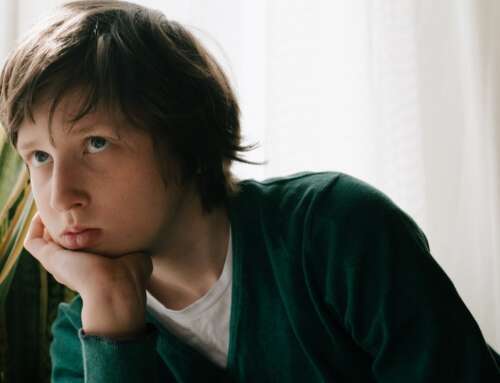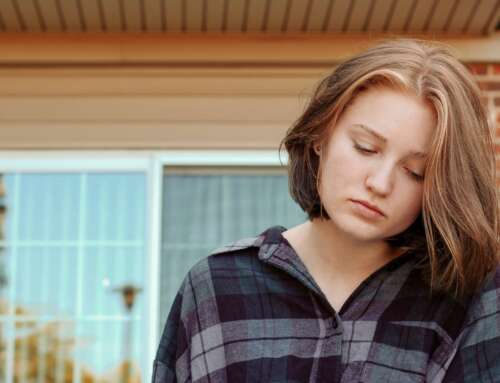How often would you send students out of your class because of disruptive behaviour? Never? Once a week? Once a day? Once a lesson? I’d imagine your response is largely determined by the kind of school you are working in and its disciplinary system.
There was a very interesting piece in the media this week that reported on research that showed, students see being sent out of class as a personal attack by most students, prompted by a teacher’s anger or dislike, rather than as a consequence of disruptive and unruly behaviour.
Only around 40% of students were able to identify why they had been sent out of class. This seems strange, until you read that the same study shows that only 42% of the students were given the reasons for being sent out, and less than half were spoken to after the lesson. I’m not here to tell teachers they shouldn’t be sending kids out of class, but I am suggesting they should at least be telling the kids why they’re being sent out. How else can they address the behaviour teachers disapprove of?
To just assume kids know their behaviour is inappropriate is one assumption too many. When this happens, the author of the research, Professor Ramon Lewis said students perceive (often incorrectly) that teachers were angry and disliked them. This perception became the focus, rather than students accepting responsibility for behaving badly. I’ve said it before and I’ll say it again and again – teaching is all about relationships. And relationships are all about communication. So if you are going to send a kid out, make sure they know why, and how you would like to see them improve in the future.

Author: Dan Haesler, he is a teacher, writer and speaker at the Mental Health & Wellbeing of Young People seminars He writes for the Sydney Morning Herald and blogs at http://danhaesler.com/ and tweets at @danhaesler







I wish there was another way to punish bad behavior. Assuming that the child is behaving inappropriately with out reason, is not always correct. There are conditions medical physical and psychological and social reasons which result in “bad behavior. ” This factor needs to be investigated. parents need to be respected and listened to when there is evidence that the situation needs special attention and the face that one size fits all tule does not always fit .Teaching profession is rewarding and stressful. Power should not make some teachers arrogant. The student in the school can be anyone’s child. Let us have the wisdom to help parents and students to learn and also assist teachers to do their work without unnecessary stress
Shyamala,
Thanks for your comment. I agree wholeheartedly that there must be strong partnerships between schools & parents (and the child!) but how often do we see & hear parents pushing responsibility back onto schools? Or vice versa?
All the best!
Dan
As a principal for the last 25 years in primary schools from small rural to urban, from leafy greens to difficult to staff, I find this research information unbelievable.
I see children outside of classrooms from time to time and when asked they often either don’t know or tell me half of the issues. When questioned with the teacher, they often know full well why they had been sent out even when the teacher has not had time or the situation to explain to them why they were being directed there. Whilst I do not condone this consequence, as there are better safer way, my experience is most of the time students know very well why they were being given a consequence like being sent out.
Dear Graeme
Thankyou for your reply. We do not necessarily endorse the view of the author and we certainly welcome opposing views from our readers. We have never and will never insist that our readers or audience accept our content blindly!
Let’s see what Dan Haesler has to say…..
Hi Graeme,
Thanks for the comment!
I too found the research hard to believe.
You can read more about it at http://www.latrobe.edu.au/news/articles/2012/article/misconduct-and-responsibility-in-class
I cited the research as a conversation starter, as I imagine like you, many teachers’ reaction would be disbelieving.
However, I also recognise that when writing for those who subscribe to the Gen Next newsletter or speaking to those in attendance at the seminars, I am in fact preaching to the converted.
You know the importance of our students’ mental health and wellbeing, and it’s likely that the staff in your school will also appreciate this, by virtue of having you as their principal. As such their behaviours and attitudes will reflect this, and there is a fair chance that students who have been asked to leave a lesson will be quite aware of the reasons why.
However, the research suggests that this is not the case in too many of our schools.
But having said that… if you Google, “smoking doesn’t cause lung cancer” you’ll find research to back that up…
As I said, I used it as a conversation starter…
All the best!
Dan
I have great sympathy with teachers who don’t give reasons for sending a disruptive student out of class. Having to deal with the incident is disruption enough to the lesson, having to also deal with the student, supported by his/her cohort, denying involvement can virtually finish the lesson for that day. Let’s have some faith in our teachers, by far the vast majority have the best interests of their students at heart and make sure they correctly identify the prime culprit before sending someone out of a class.
Tony,
“Let’s have some faith in our teachers!” – What a wonderful sentiment! We also need to support our teachers and continually develop our teachers.
Thanks for the comment!
Dan
I work as a school counsellor and was a primary teacher for many years and also a school principal for four of my years. I find this study fascinating and instead of throwing out the data that has come from it to say “how could this be reflective of students in my school?” I see lots of kids who don’t understand their role in the problems that arise within a classroom however the teachers that implement a restorative process seem to have fewer ongoing issues and the students are more likely to see their responsibility in all of this. Coming from a number of different experiences in a school, teachers need a huge amount of support, as do our leaders. If the relationship with the students’ and their learning is kept as a priority then things seem to go better.